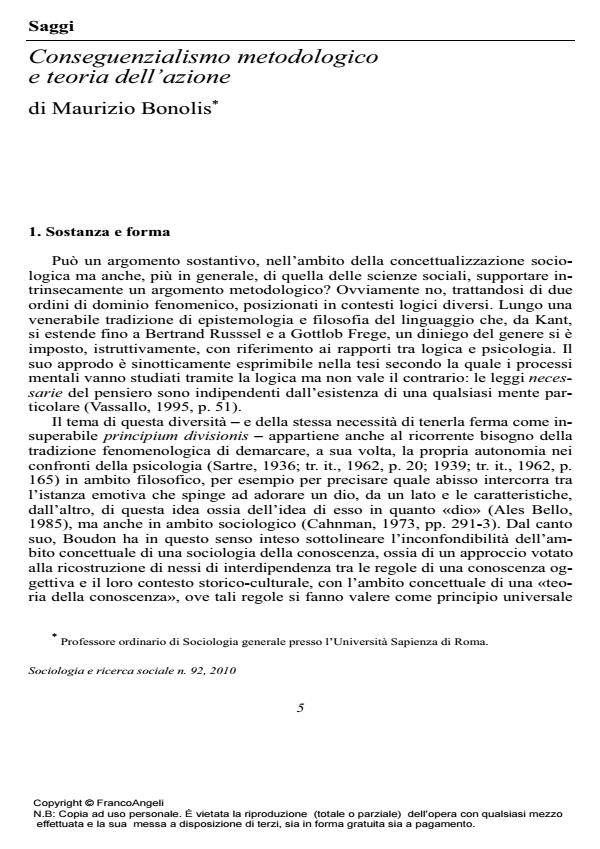Conseguenzialismo metodologico e teoria dell’azione
Titolo Rivista SOCIOLOGIA E RICERCA SOCIALE
Autori/Curatori Maurizio Bonolis
Anno di pubblicazione 2011 Fascicolo 2010/92
Lingua Italiano Numero pagine 29 P. 5-33 Dimensione file 366 KB
DOI 10.3280/SRS2010-092001
Il DOI è il codice a barre della proprietà intellettuale: per saperne di più
clicca qui
Qui sotto puoi vedere in anteprima la prima pagina di questo articolo.
Se questo articolo ti interessa, lo puoi acquistare (e scaricare in formato pdf) seguendo le facili indicazioni per acquistare il download credit. Acquista Download Credits per scaricare questo Articolo in formato PDF

FrancoAngeli è membro della Publishers International Linking Association, Inc (PILA), associazione indipendente e non profit per facilitare (attraverso i servizi tecnologici implementati da CrossRef.org) l’accesso degli studiosi ai contenuti digitali nelle pubblicazioni professionali e scientifiche.
The consequentialist model in social sciences is based on the fact that the explanation of action is: a) motivated by the perspective of obtaining a goal (teleology); b) can also be motivated by prior awareness and judgment related to its feasibility; c) is retroactively motivated (teleonomy) by the consequences the action produces other than of attaining the goal itself. Weber and Pareto bring consequentialism permanently into sociology, though without the utilitarian option Scottish moralists originally applied to it. Weber proposes a formal «methodological» categorization which gives it a reduced level of abstraction and opens it to substantial typification. The model therefore becomes an essential cognitive component of action, profitably developed by contemporary social theory, and also aims to a pragmatic use of the discipline in terms of policy making, prediction and social projects.
Maurizio Bonolis, Conseguenzialismo metodologico e teoria dell’azione in "SOCIOLOGIA E RICERCA SOCIALE " 92/2010, pp 5-33, DOI: 10.3280/SRS2010-092001